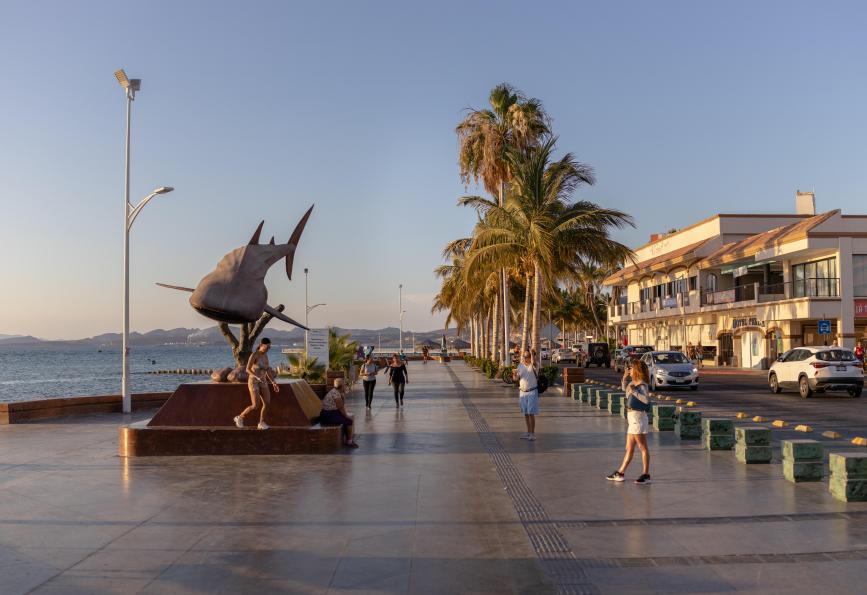
Published date: 22 Dec 2021
By: Jessica Jones
La Paz is a city of 200,000 residents, with a dry, hot and extremely arid climate throughout the year. It is part of the Baja California peninsula, famous for its beautiful beaches and spectacular landscapes combining the desert and the Sea of Cortez. The only mosquito present in the area is the Aedes aegypti, which transmits viruses such as Zika, chikungunya and dengue. All four serotypes of the dengue virus are present in Mexico, increasing the likelihood of developing severe dengue.
In 2015, the World Mosquito Program came to La Paz at the invitation of the local and federal government. In a joint effort, they sought the participation of the residents. Some hosted mosquito traps, while others put ZancuKits (also known as Mozzie Boxes) in trees on their property or near their homes. One of the participants was Cecilia Paola Espinoza. She, like hundreds of other families, participated throughout the process of placement, release and monitoring of the World Mosquito Program’s Wolbachia mosquitoes.

"I have been living in La Paz for 22 years. I like the tranquility with which we live here, the natural beauty that surrounds us. My knowledge about dengue did not come from living here, but in Chiapas - a state in the south of Mexico - where it is a very serious problem: in addition to poverty and lack of education, the excess of rain helps the proliferation of mosquitoes," says Cecilia.
Cecilia, with a warm voice, takes her time to speak, as if remembering little by little her life in that exuberant area of her country.
Cecilia houses one of the 475 mosquito traps, designed to catch adult mosquitoes, that were placed throughout the city in her home.
"Having a trap at home is an example of the participation I am referring to; besides, it is the clearest way to see if the program works or not... and if it works, we all should support it so the method can be implemented in other states in Mexico."

The ZancuKit is a cardboard cup of almost 1.5 litres containing a capsule of Wolbachia mosquito eggs and food. This capsule is placed in water and covered, and then hung high up in the trees. When the mosquitoes hatch and are ready to emerge, they come out through holes in the cup. The ZancuKits are the mosquito release containers used in Mexico, while some countries use small boxes called Mozzie Boxes.
"The involvement of the community is fundamental: the participation of everyone to allow Zancukits in the houses, to maintain the traps, to collaborate with the World Mosquito Program for the follow-up... it is a team effort and we are very fortunate that this program has been implemented here. There are states like Chiapas that suffer a lot from dengue and would like to have this program, too... I think that in La Paz we should feel fortunate that we are pioneers in Mexico of the World Mosquito Program."
Cecilia is emphatic on the point: to fight dengue, working together is the key.

